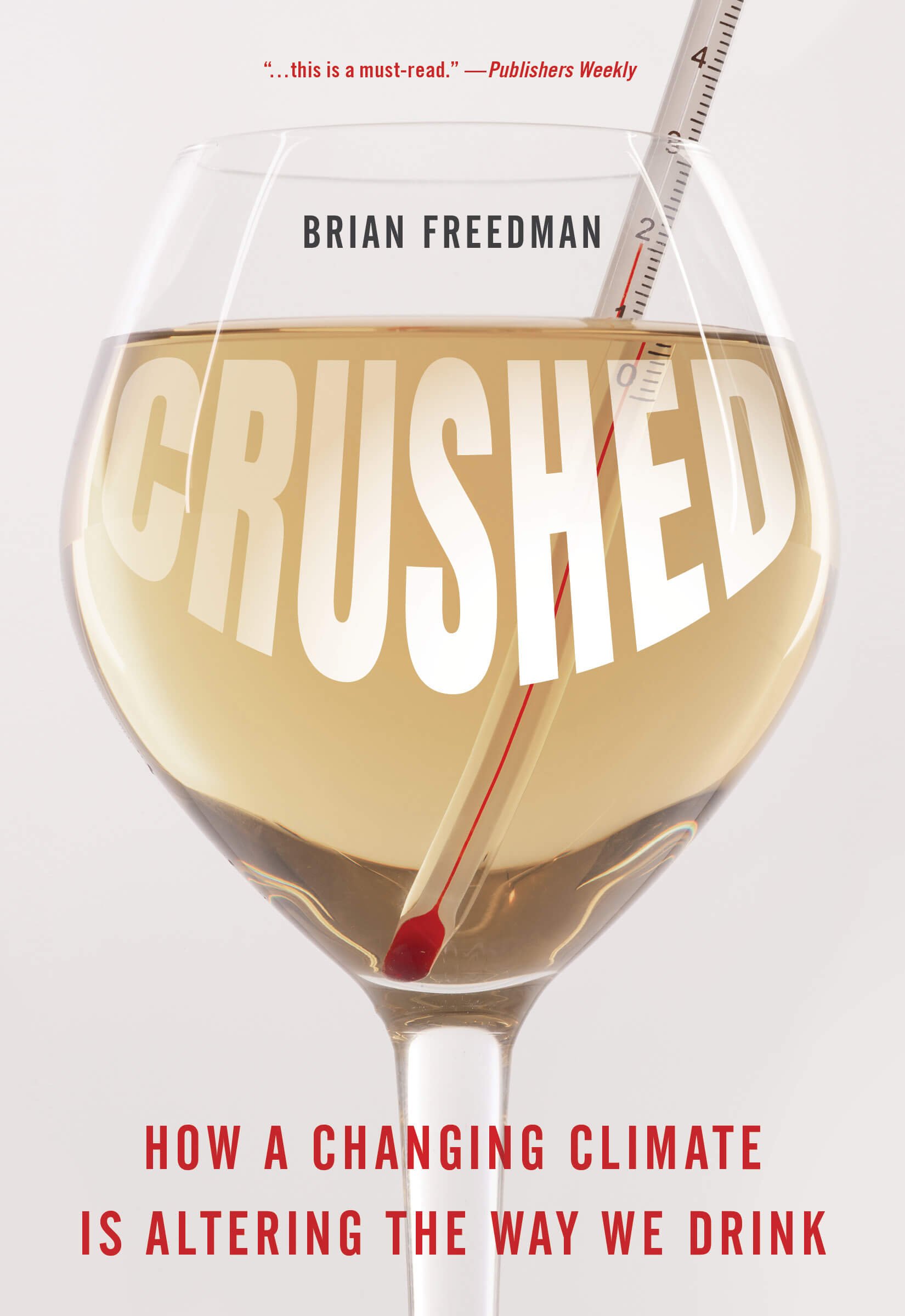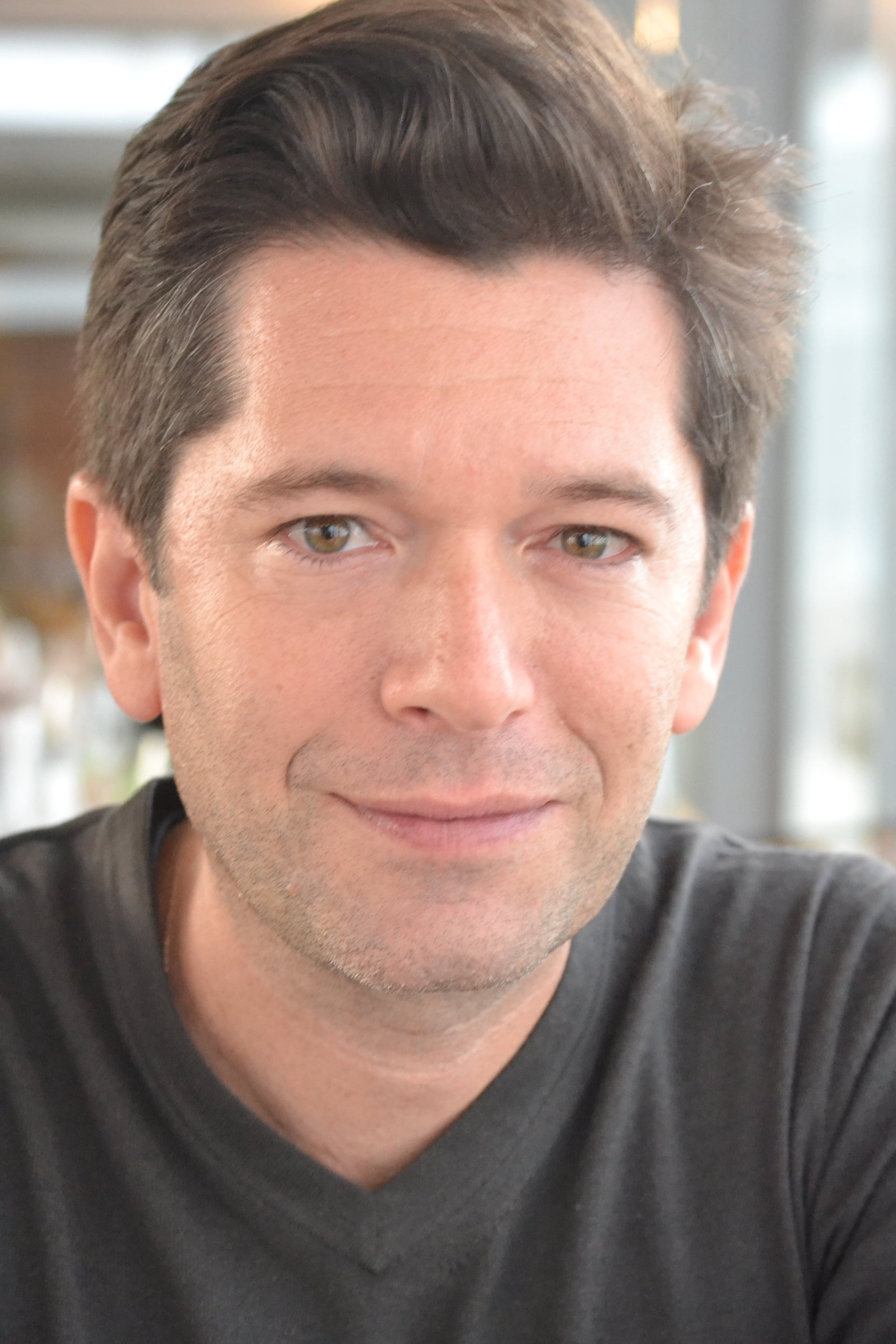Boozy Book Review: Crushed by Brian Freedman
Brian Freedman’s book Crushed: How a Changing Climate Is Altering the Way We Drink is about local solutions to global climate change. He checks in with wine producers in California, France, Israel, England, Patagonia, Texas, and South Africa, and finds a host of different reactions to similar issues.
To do this, Freedman examines the history of each region, the local growing conditions, and climate issues of the past including frosts, hailstorms, and heatwaves that have impacted crops and commerce. He also looks at how certain wine regions formed and prospered (or not) depending on regional economics. For example, we see technologically advanced winemakers in Israel able to produce wine in desert environments, while growers in poorer countries struggle to take advantage of relatively good soils. And that’s before climate change.
Predicting the Weather
Brian Freedman
The problem of climate change goes well beyond global warming and the resulting drier weather. It is “the unpredictable effects of those climbing temperatures – the nature of precipitation, drought, and more.” There are more fires and flash floods, and more sudden and intense rainstorms and hailstorms that flood facilities and fields and kill vines. In some regions there are an increased number of new pests and plant diseases that thrive in conditions caused by the change in weather. So, dealing with climate change includes thoughtfully preparing for known issues, and attempting to futureproof against the unknown.
You may have heard that England is gaining a reputation for quality sparkling wine now, due to rising temperatures. Freedman writes that it’s not simply a matter of warmer average temperatures, but a number of factors including improving grape clonal selection, site selection, and economic investment and investors that allow for this improvement in the local sparkling. The soil in parts of England is similar to that of the Champagne region in France, but “the difference in England now is that climate change is making certain decisions possible that simply weren’t before.” The producers in England were well positioned to be able to take advantage of climate change. This is not a usual case.
In Patagonia and thereabouts, winemakers are looking southward (and also to higher elevations closer to the mountains) as colder places warm up. Grape growers there are benefitting from warmer temperatures along with “increasingly persistent winds” that help prevent fungus and mold, but on the other hand there are longer periods of drought followed by shorter but very intense rainstorms that are more than the land can absorb all at once. Additionally, in some regions the water for irrigation comes from snowmelt from the Andes Mountains, which are experiencing less snow accumulation than in the past. Adding to the issue is cities like Mendoza that are growing, causing has increased demand for the same snowmelt water. Here the future success of winemaking seems less certain.
Those examples are reactions to the predictable changes, surmountable in some (often wealthier) parts of the world and limiting in others. The unpredictable climate events often prove catastrophic- or close. Freedman shows us smoke-tainted wines in California, hailstorm-destroyed vineyards in France, and a freezing winter storm in Texas that wiped out a full season’s production.
Adapting to Climate Change
South Africa vineyard. Photo by Matthieu Joannon on Unsplash.
The ways in which winemakers in different locations are dealing with this climate change include shifting to planting grape varietals that can be harvested earlier or later to accommodate warmer temperatures or to avoid storms, using technology like sensors and drones to monitor conditions on a micro level and compensate in realtime, and switching from flood irrigation to less water-intensive drip irrigation. In South Africa, we see how growing wine more naturally without chemical sprays and allowing weeds and natural pest predators helps protect fields against climate and weather impacts better than intensive industrial farming.
Beyond Wine
The book includes one chapter on spirits, which doesn’t carry the same sense of urgency as those on wine. This makes sense as most spirits are distilled from commodity grains that can be stored for years, compensating for good and bad seasons. But I found the comparison useful. For a book looking at how spirits producers are attempting to become more sustainable, moreso than fighting current climate emergencies, consider A Good Drink: In Pursuit of Sustainable Spirits by Shanna Farrell that I reviewed on Alcohol Professor.
Freedman’s Crushed is a thorough overview of how climate change is impacting the world of wine and a sampling of ways in which winemakers are dealing with those changes. It is an engaging and necessary work.



